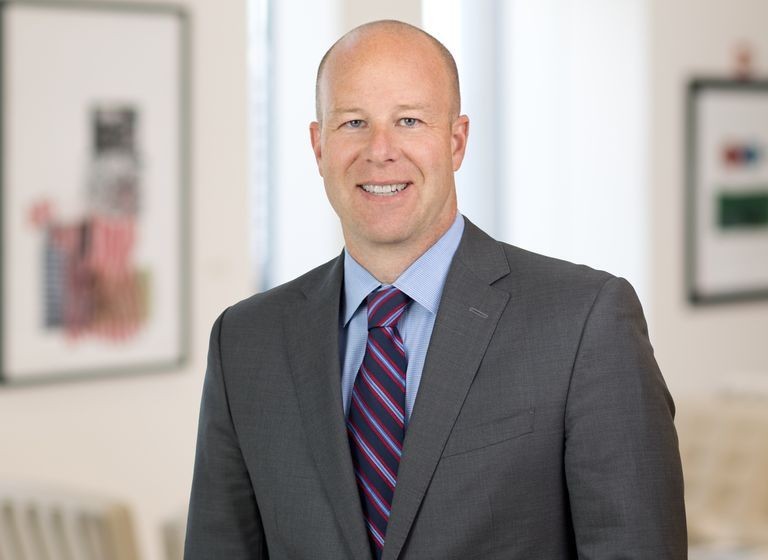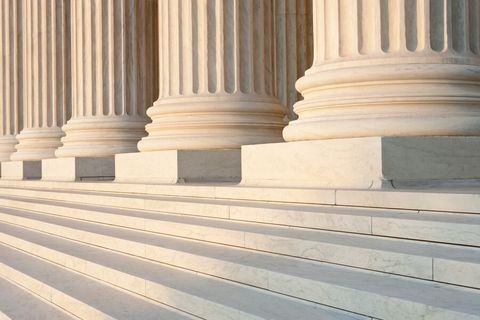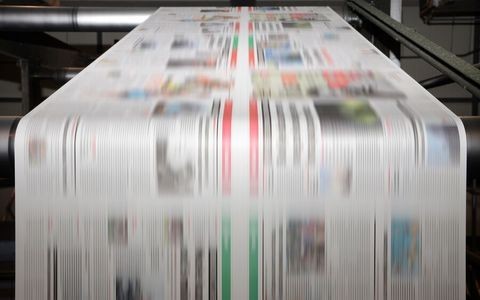Mark H. Remus
Overview
Clients trust Mark Remus to solve their patent disputes quickly, efficiently, and strategically. He has served as lead counsel on numerous patent infringement litigation matters, and he has successfully represented clients in jury trials, bench trials, and appeals to the U.S. Court of Appeals for the Federal Circuit and the U.S. Supreme Court. Intellectual Asset Management (IAM) magazine writes that Mark is “[a]lways one of the best lawyers in the courtroom, he has an even temperament for litigation and is precise in everything he does,” calling him “quite a force to be reckoned with.” Clients recognize Mark for being “always well-prepared and conscientious” and “tough when the situation requires it.”
Career & Education
- University of Illinois, B.S., with distinction, chemical engineering, 1994
- University of Illinois College of Law, J.D., cum laude, 1997
- Supreme Court of the United States
- U.S. Patent and Trademark Office (USPTO)
- U.S. District Court for the Northern District of Illinois
- U.S. Court of Appeals for the Federal Circuit
- U.S. District Court for the Northern District of Illinois, Trial Bar
Mark 's Insights
Client Alert | 2 min read | 11.14.25
Claim construction is a key stage of most patent litigations, where the court must decide the meaning of any disputed terms in the patent claims. Generally, claim terms are given their plain and ordinary meaning except under two circumstances: (1) when the patentee acts as its own lexicographer and sets out a definition for the term; and (2) when the patentee disavows the full scope of the term either in the specification or during prosecution. Thorner v. Sony Comput. Ent. Am. LLC, 669 F.3d 1362, 1365 (Fed. Cir. 2012). The Federal Circuit’s recent decision in Aortic Innovations LLC v. Edwards Lifesciences Corp. highlights that patentees can act as their own lexicographers through consistent, interchangeable usage of terms across the specification, effectively defining terms by implication.
Firm News | 2 min read | 05.30.25
Press Coverage | 09.09.24
Firm News | 8 min read | 08.15.24
Representative Matters
- Led a trial team through a seven-week bench trial that resulted in the district court invalidating a patent on a $1 billion-per-year drug. The district court’s decision was affirmed on appeal.
- After a two-week jury trial, achieved a complete victory for his patent owner-client on multiple counts of patent and trademark infringement. The district court subsequently found the infringer in contempt of a post-trial injunction and awarded attorney’s fees for willful infringement. The total judgment was over $12 million on just $2 million in accused sales. In awarding attorney’s fees, the district court noted that the “high level of Plaintiffs’ attorneys’ trial practice skills was a significant factor in achieving a favorable result for the Plaintiffs.”
- Represented numerous pharmaceutical companies in Hatch-Waxman bench trials concerning myriad drugs and technologies.
- Represented manufacturer in trade secret misappropriation case against a competitor that hired a former employee. The case was successfully resolved when the defendant agreed to redesign the accused products to remove the misappropriated subject matter.
- On behalf of an industrial equipment manufacturer, successfully persuaded the Federal Circuit to reverse a decision by the Patent Trial and Appeal Board that the challenged patent was valid.
- In a case that reached the Supreme Court, represented a worldwide offshore drilling contractor in a patent infringement case involving an offshore drilling apparatus. The case made two trips to the Federal Circuit Court of Appeals and then settled on appeal to the Supreme Court after the Court referred the case to the Solicitor General for review and comment.
Mark 's Insights
Client Alert | 2 min read | 11.14.25
Claim construction is a key stage of most patent litigations, where the court must decide the meaning of any disputed terms in the patent claims. Generally, claim terms are given their plain and ordinary meaning except under two circumstances: (1) when the patentee acts as its own lexicographer and sets out a definition for the term; and (2) when the patentee disavows the full scope of the term either in the specification or during prosecution. Thorner v. Sony Comput. Ent. Am. LLC, 669 F.3d 1362, 1365 (Fed. Cir. 2012). The Federal Circuit’s recent decision in Aortic Innovations LLC v. Edwards Lifesciences Corp. highlights that patentees can act as their own lexicographers through consistent, interchangeable usage of terms across the specification, effectively defining terms by implication.
Firm News | 2 min read | 05.30.25
Press Coverage | 09.09.24
Firm News | 8 min read | 08.15.24
Recognition
- Intellectual Asset Management: IAM Patent 1000, 2015 – 2016, 2020–2021; IAM Patent Litigation: Illinois, 2013–2014
- Euromoney Expert Guide to the World's Leading Patent Law Practitioners, 2017–2020
- LMG Life Sciences Star, 2013–2020
- Crain’s: Notable Gen X Leaders in Law, 2019
- Super Lawyers: Illinois Intellectual Property Litigation, 2013–2021
- The Best Lawyers in America: Litigation—Intellectual Property, 2016–2025; Litigation—Patent, 2019–2026
- Forty Illinois Attorneys Under 40 to Watch, 2006
Mark 's Insights
Client Alert | 2 min read | 11.14.25
Claim construction is a key stage of most patent litigations, where the court must decide the meaning of any disputed terms in the patent claims. Generally, claim terms are given their plain and ordinary meaning except under two circumstances: (1) when the patentee acts as its own lexicographer and sets out a definition for the term; and (2) when the patentee disavows the full scope of the term either in the specification or during prosecution. Thorner v. Sony Comput. Ent. Am. LLC, 669 F.3d 1362, 1365 (Fed. Cir. 2012). The Federal Circuit’s recent decision in Aortic Innovations LLC v. Edwards Lifesciences Corp. highlights that patentees can act as their own lexicographers through consistent, interchangeable usage of terms across the specification, effectively defining terms by implication.
Firm News | 2 min read | 05.30.25
Press Coverage | 09.09.24
Firm News | 8 min read | 08.15.24
Insights
Two New Weapons for Defending Hatch-Waxman Litigation
|09.03.18
Life Sciences Intellectual Property Review
The Long Arm of US Patent Laws
|10.01.14
The Patent Lawyer
Secondary Considerations, Relief, and Inter Partes Reviews Further Complicate Patent Law
|01.01.14
The Impact of Recent Patent Law Cases and Developments
Shareholder Mark Remus is Quoted in Westlaw Journal Intellectual Property
|01.30.19
Westlaw Journal Intellectual Property
Shareholder Mark Remus is Quoted in Intellectual Property Magazine
|01.23.19
Intellectual Property Magazine
Westlaw Journal Intellectual Property Quotes Brinks Shareholder Mark Remus
|12.21.18
Westlaw Journal Intellectual Property
Mark 's Insights
Client Alert | 2 min read | 11.14.25
Claim construction is a key stage of most patent litigations, where the court must decide the meaning of any disputed terms in the patent claims. Generally, claim terms are given their plain and ordinary meaning except under two circumstances: (1) when the patentee acts as its own lexicographer and sets out a definition for the term; and (2) when the patentee disavows the full scope of the term either in the specification or during prosecution. Thorner v. Sony Comput. Ent. Am. LLC, 669 F.3d 1362, 1365 (Fed. Cir. 2012). The Federal Circuit’s recent decision in Aortic Innovations LLC v. Edwards Lifesciences Corp. highlights that patentees can act as their own lexicographers through consistent, interchangeable usage of terms across the specification, effectively defining terms by implication.
Firm News | 2 min read | 05.30.25
Press Coverage | 09.09.24
Firm News | 8 min read | 08.15.24






